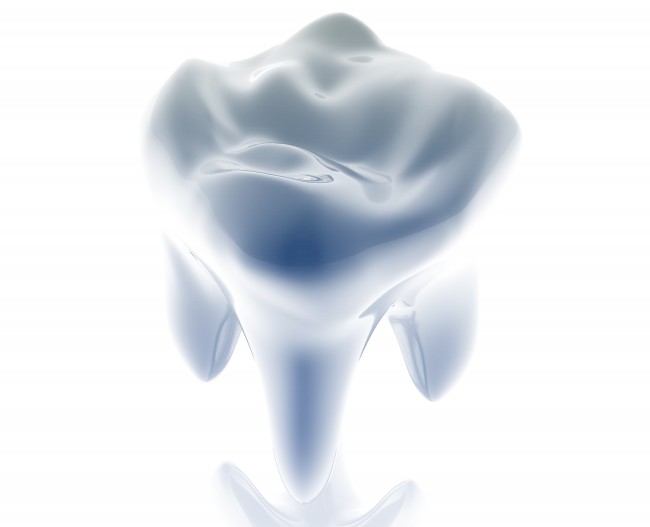 What Are Wisdom Teeth?
What Are Wisdom Teeth?
Wisdom teeth are technically known as third molars. Wisdom teeth, like your other teeth are composed of pulp, dentin and enamel. Pulp is the innermost layer and refers to the portion inside the tooth, which harbors nerves and blood vessels. These teeth are called “Wisdom Teeth” because they erupt in the mouth after the eruption of every other set of teeth, during the beginning stages of adulthood, between the age range of 16 and 25. By the age of 18 the average adult has 32 teeth: 16 teeth on the upper jaw and 16 teeth on the lower jaw. Each tooth in the mouth has a specific name and function. The teeth in the front of the mouth (incisors, canine and bicuspid teeth) are ideal for grasping and biting food into smaller pieces. The back teeth (molar teeth) are used to grind food up into a consistency suitable for swallowing. The average mouth is made to hold only 28 teeth. The remaining four teeth are the third molars. It can be painful when 32 teeth try to fit in a mouth that holds only 28 teeth.
Why Should I Have My Wisdom Teeth Removed?
Wisdom teeth are the last teeth to erupt within the mouth. If they erupt without any complications, a person does not experience serious discomfort. When they align properly and gum tissue is healthy, wisdom teeth are a valuable asset to the mouth and do not have to be removed. Unfortunately, this does not generally occur.
Wisdom teeth can become problematic in many people and often require surgical removal. Potential problems are caused even in the presence of properly grown-in wisdom teeth, including infections caused by food particles easily trapped in the jaw area behind the wisdom teeth where regular brushing and flossing is difficult and ineffective.
The extraction of wisdom teeth is usually necessary when they are prevented from properly erupting within the mouth. Wisdom teeth commonly do not have enough room to properly erupt into our mouth where they can become fully functional and cleansable teeth. These teeth may grow sideways, partially emerge from the gum and even remain trapped beneath the soft tissue and jawbone. Wisdom teeth that lean toward the second molars make those teeth more vulnerable to decay by entrapping plaque and debris. Impacted teeth can take many positions in the bone as they attempt to find a pathway that will allow them to successfully erupt, and poor alignment of wisdom teeth can crowd or damage adjacent teeth, the jawbone or nerves.
When they are partially erupted, the opening around the teeth allows bacteria to grow and will eventually cause an infection. The result: swelling, stiffness, pain, and illness. The pressure from the erupting wisdom teeth may move other teeth and disrupt the orthodontic or natural alignment of teeth. This lack of space can result in a number of harmful effects on your overall dental health.
The most serious problem occurs when tumors or cysts form around the impacted wisdom teeth, resulting in the destruction of the jawbone and healthy teeth. Removal of the offending impacted teeth usually resolves these problems.
When Should I Have My Wisdom Teeth Removed?
Wisdom teeth are known to be easier to remove and recover from while the patient is younger. This is because the bones are softer and the roots are not completely formed. Early removal is recommended to avoid future problems and to decrease the surgical risk involved with the procedure.
Oral Examination
With an oral examination and x-rays of the mouth, Dr. Lee can evaluate the position of the wisdom teeth and predict if there are present or may be future problems. Studies have shown that early evaluation and treatment result in a superior outcome for the patient. Patients are generally first evaluated in the mid-teenage years by their dentist, orthodontist or by an oral and maxillofacial surgeon.
All outpatient surgery is performed under appropriate anesthesia to maximize patient comfort. Dr. Lee has the training, license and experience to provide various types of anesthesia for patients to select the best alternative.
Removal
Our office is staffed by professionals highly skilled in the performance of wisdom teeth extractions. Wisdom teeth pulling out may be either planned or done on an emergency basis. Wisdom teeth removal is a simple dental procedure that is easily and properly done at the right time suggested by dentists or our staff.
In most cases, the removal of wisdom teeth is performed under local anesthesia, sedation or general anesthesia. These options, as well as the surgical risks (i.e., sensory nerve damage, sinus complications), will be discussed with you before the procedure is performed. Once the teeth are removed, gauze is placed in the mouth over the extraction site to control the bleeding. You will rest under our supervision in the office until you are ready to be taken home. Upon discharge, your postoperative kit will include postoperative instructions, a prescription for pain medication, antibiotics, gauze and a follow-up appointment in one week.
Recovery
Though the procedure is not very complicated, what matters most is the care after the wisdom teeth removal. The recovery period of wisdom tooth extraction ranges from a few days to a few weeks. While it isn’t a major surgery, certain activities should be limited for a short time afterward. Wisdom teeth removal can leave with you puffed out, swollen cheeks. This swelling is normal, and is proportional to the surgery — if you had all four of your wisdom teeth removed, expect more swelling than someone who only had his upper or lower wisdom teeth removed, for example.
Our services are provided in an environment of optimum safety that utilizes modern monitoring equipment and staff who are experienced in anesthesia techniques.
If you have any questions, please do not hesitate to call us at 714-734-9363.